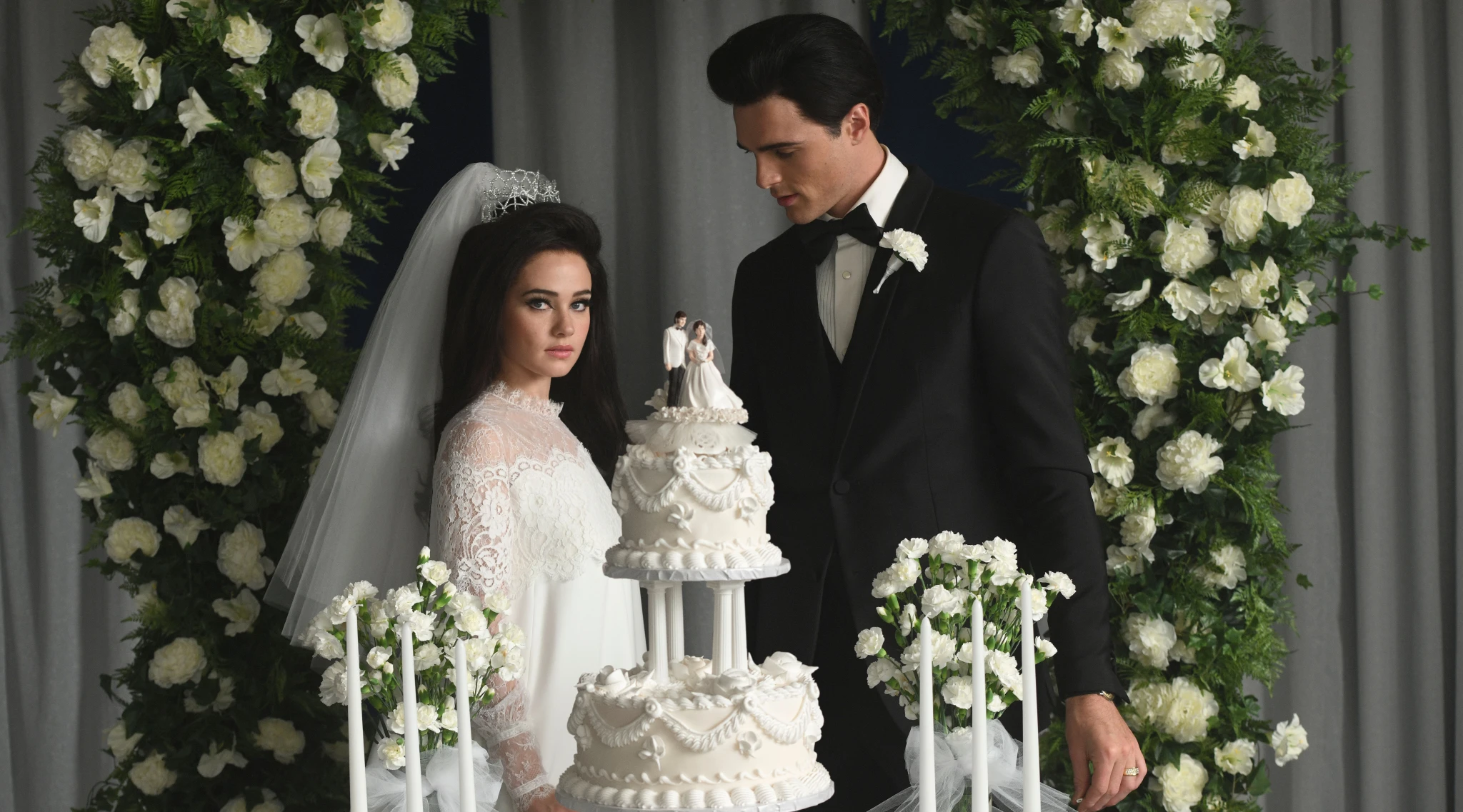In 1959, Priscilla Beaulieu met Elvis Presley at his house party. She was a 14-year-old ninth grader who lived the characteristic life of a teen. He was a 26-year-old international rock n’ roll superstar with millions of records sold. Elvis immediately took a liking to Priscilla; despite her parents’ doubts, the pair’s complicated relationship began.
Directed by Sophia Coppola, “Priscilla” follows Priscilla’s (Cailee Spaeny) relationship with Elvis (Jacob Elordi) from the aforementioned party to their divorce in 1973. To cover such an extent of time, the film sprawls out as a series of tableaux. We see transient glimpses of their relationship, the highs and milestones and the equal lows and moments of normalcy.
Like Coppola’s previous work, whether it’s illiberal parenting in “The Virgin Suicides” or societal enclosures in “Marie Antonette,” “Priscilla” is about confinement. It begins with Priscilla’s assimilation into Elvis’s life, as we watch how he introduces her to his interests, friends, drugs and wealth. It’s patiently paced but contains a whirlwind of events and places such as the roller rink, the gambling floors of Vegas and the gorgeously furnished Graceland. Throughout this high life, a lulling patina is used, giving Priscilla’s world an alluring and dreamlike veil because, for her — or any teenager for that matter— it’s a fairytale come true.
Although she doesn’t know it yet, Priscilla is losing her autonomy to Elvis, hinging her happiness and identity around him. The utilization of clothes and makeup is characteristic of this, one of many ways Elvis models her to become “his.” Priscilla complies, dying her hair black and applying eyeshadow of the same color. When Elvis goes out to shoot movies, he relegates Priscilla to an isolating Graceland, where she is left reading tabloids about his on-set affairs. Later, as the pill bottles on his nightstand grow and less-than-pleasant calls with his manager persist, Elvis projects his anger and frustration onto his wife, creating a toxic and stifling environment. By doing so, Coppola exposes this codependent relationship and, once again, successfully depicts the pains and emotional detachment of confinement.
In addition to explicitly acknowledging the age gap headlong, “Priscilla” makes it evident that the two are always living in different stages of life. Because of this, there is a disappointing lack of Priscilla’s interests, desires for the future, or relationships outside Elvis’s circle. The culprit of this is the script’s airiness, with many conversations lacking dramatism or being too brief for their own good.
There eventually reaches a span where the film’s motions become familiar, and the themes stop progressing. The collateral of this stagnation is the closing sequences concerning Priscilla’s quest for independence and the act of doing so. Promptly, we see her removal of cosmetics and some good times with friends. For a film that so carefully crafts this oppressive romance spanning decades, its deliberation wanes in the very end, resulting in a cardinal choice that doesn’t resonate as powerfully as it should.
Verdict: Bringing light to a twisted celebrity relationship, “Priscilla” is about a woman trapped in isolation. Coppola’s depiction is frontloaded, stagnating on its most important themes, leaving her story feeling unfinished.








